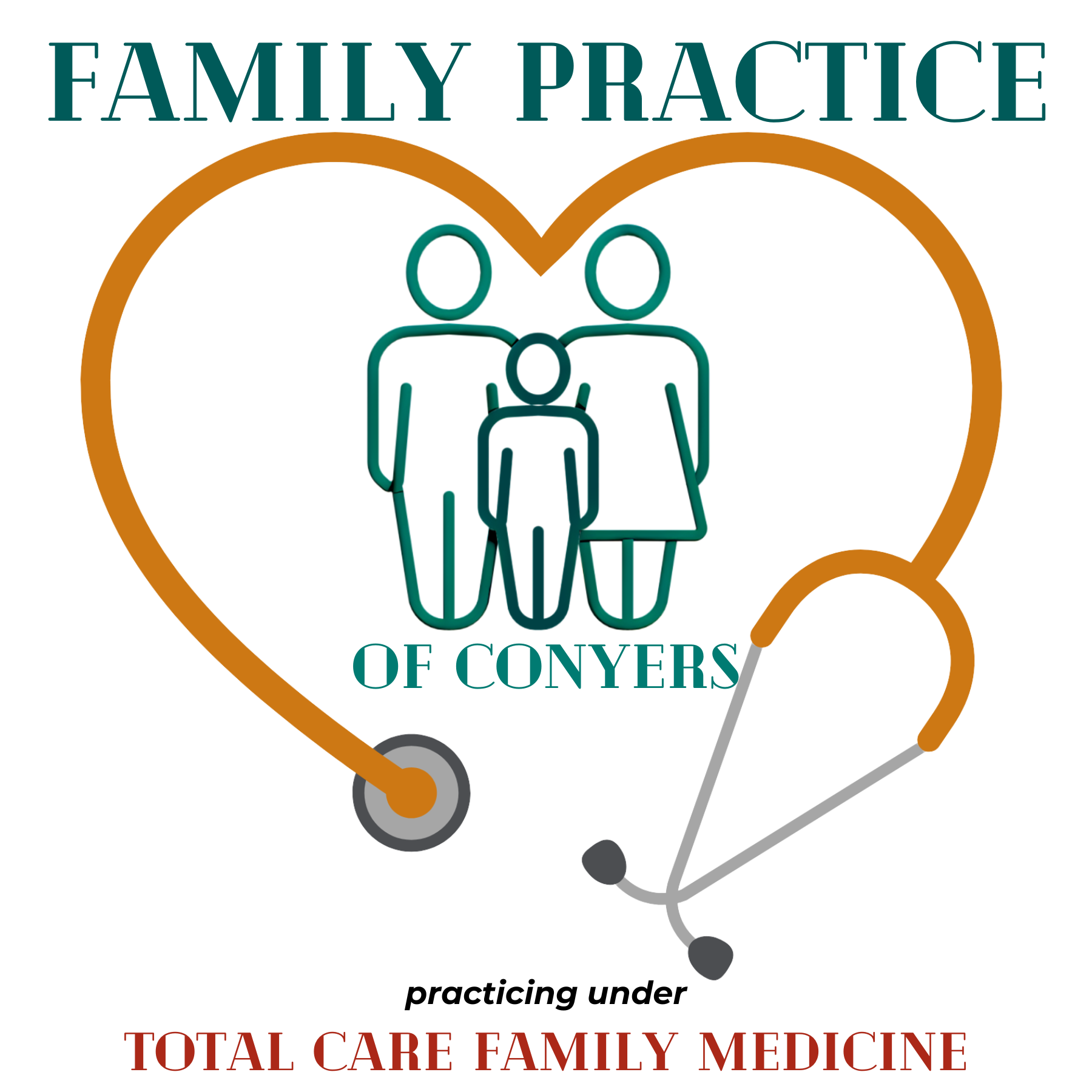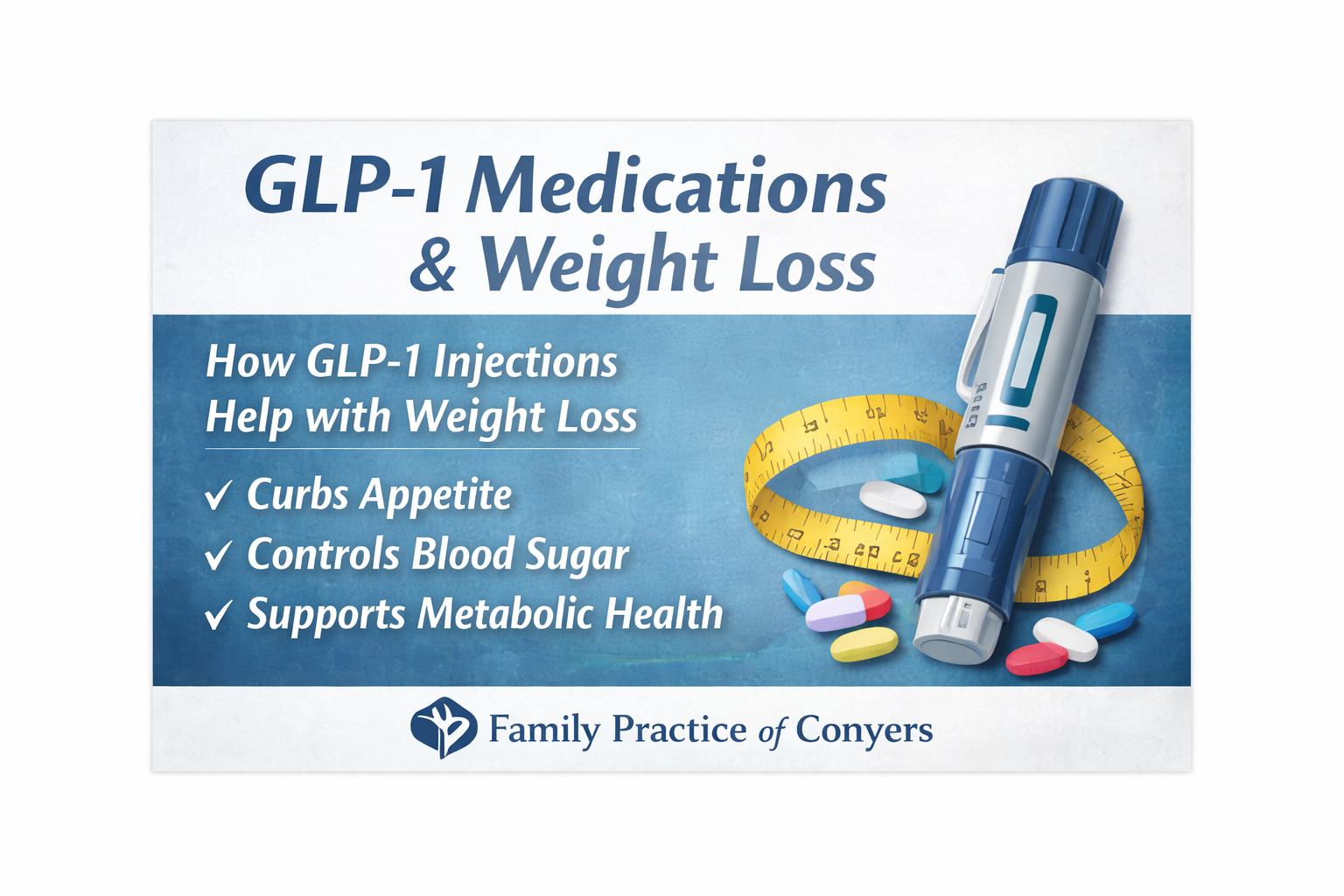GLP-1 Medications: What Patients Need to Know About Weight Loss Injections
GLP-1 medications, weight loss injections, GLP-1 weight loss, semaglutide, medical weight loss
Managing a chronic condition often begins with your primary care provider, but sometimes symptoms require specialized care. Knowing when to involve a specialist can help prevent complications and lead to more effective treatment. At Family Practice of Conyers, we guide patients through every stage of their care, including specialist referrals when needed.
Why Seeing a Specialist Matters
Specialists focus on a specific area of medicine and possess in-depth expertise in diagnosing, treating, and monitoring complex or persistent medical conditions.
Examples include:
- Cardiologists (heart disease, high blood pressure)
- Endocrinologists (diabetes, thyroid issues)
- Rheumatologists (arthritis, autoimmune conditions)
- Gastroenterologists (digestive disorders like GERD or IBS)
- Neurologists (migraines, multiple sclerosis, neuropathy)
Discover the various types of medical specialists.
Signs It’s Time to See a Specialist
1. Your Condition Isn’t Improving
- Symptoms persist or worsen despite following your treatment plan
- Medications are no longer effective or are causing side effects.
2. New or Alarming Symptoms Appear
- Sudden weight loss
- Vision changes
- Chest pain, numbness, or fainting
- Difficulty swallowing or breathing
3. You Need Advanced Testing or Diagnosis
- Imaging, biopsies, hormone panels, or genetic testing may be required.
- Specialists can offer targeted diagnostics that are not always available through primary care.
4. You’re Preparing for a Procedure
- Surgery or advanced therapies (e.g., infusion treatments) often require the oversight of a specialist.
5. You Want a Second Opinion
- It’s okay to double-check a diagnosis or treatment plan with another expert.
Know when to get a second opinion.
How Family Practice of Conyers Helps Coordinate Your Care
-
Tracks red flags through symptom journals and check-ins
- Communicates with specialists on your behalf for continuity
- Guides referrals based on your unique condition and location
Questions to Ask When Seeing a Specialist
- What is your experience with my condition?
- What tests do I need, and what will they show?
- What are my treatment options and possible side effects?
- How will you coordinate with my primary care provider?
Final Thoughts
Your health deserves a team approach. If you're noticing red flags or feel like you're not getting the answers you need, it may be time for specialized care. Family Practice of Conyers is here to help you recognize the signs and connect you with the right expert at the right time.











